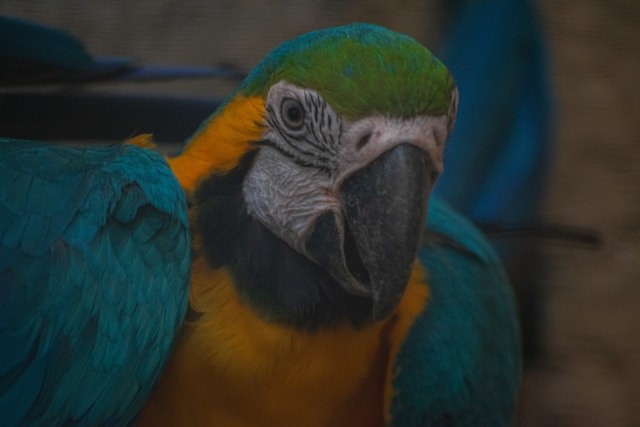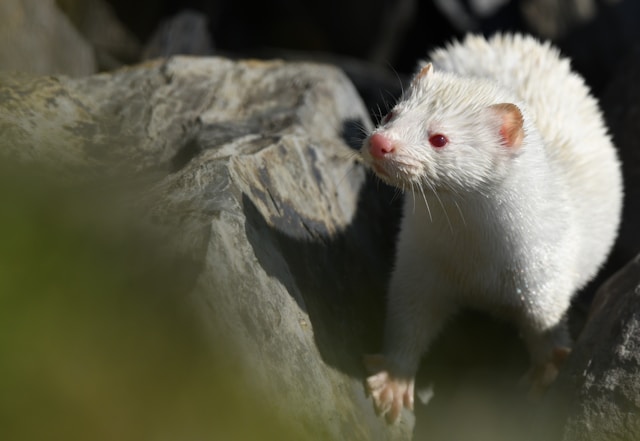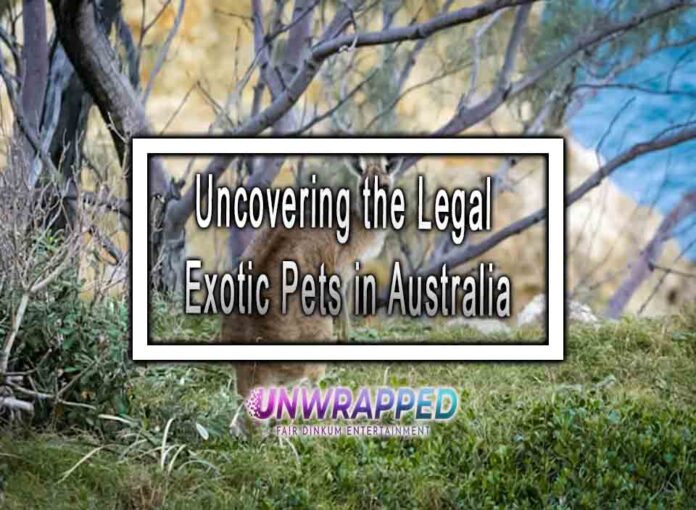In Australia, the laws regarding exotic pets are strict and vary from state to state. Here are some examples of exotic pets that are generally legal to own in Australia, but specific regulations can vary, so it’s important to check the local laws in your state or territory:
Birds
- Budgerigars (Budgies) – Budgerigars, commonly known as budgies, are small, colorful parakeets that are popular as pets around the world. They are native to Australia and are known for their vibrant plumage, playful behavior, and ability to mimic human speech.
- Cockatiels – Cockatiels are popular pet birds known for their friendly and affectionate nature, as well as their distinct crest and ability to mimic sounds. They are native to Australia and belong to the cockatoo family. Their sociable nature and ability to bond with humans make them beloved companions. With proper care, they can live for 15-20 years, providing long-term companionship and joy to their owners.

- Canaries – Canaries are small, colorful songbirds that are popular pets due to their pleasant singing and vibrant plumage. They belong to the finch family and are native to the Canary Islands, Azores, and Madeira.
- Finches – Finches are small, active, and colorful birds that are popular as pets due to their vibrant plumage and cheerful behavior. They belong to the family Fringillidae and are found in various parts of the world, including Australia, Africa, and the Americas.
- Parrots (various species, but not all)
Reptiles
- Certain species of Pythons (e.g., Carpet Python, Children’s Python)
- Bearded Dragons
- Blue-tongued Skinks
- Centralian Rough Knob-tail Gecko
Amphibians
- Some species of Frogs (e.g., Green Tree Frog, White-lipped Tree Frog)
Small Mammals
- Guinea Pigs (in most states except Queensland)
- Rats and Mice (common domesticated varieties)
- Rabbits (illegal in Queensland but allowed in other states with restrictions)
Fish
- Various species of tropical and freshwater fish are allowed, but there are restrictions on certain invasive species.
Invertebrates
- Stick Insects
- Spiders (some species, but check local laws for specifics)
- Snails (some species, but check for restrictions)
Restrictions and Prohibited Animals
Australia has strict biosecurity laws, and many exotic animals are prohibited to prevent them from becoming invasive species or spreading diseases. For example:
- Ferrets, hamsters, and gerbils are illegal in some states.
- Sugar Gliders and Hedgehogs are not allowed.
- Large reptiles (e.g., crocodiles) and venomous snakes are prohibited.
- Primates are not allowed as pets.

Licensing and Permits
Even for species that are generally allowed, you might need a special license or permit, especially for native wildlife. The requirements for these permits can include proper housing, care standards, and sometimes even educational or conservation purposes.
- Native Wildlife: Many native reptiles and amphibians require a license. Licenses are categorized into different classes based on the level of experience required to keep certain species.
- Application Process: To obtain a license, you usually need to demonstrate knowledge of the species’ care requirements and provide appropriate housing conditions.
- Ongoing Compliance: Licensed owners must adhere to specific care standards and may be subject to inspections.
Specific Regulations
- Companion Animals Act 1998: Governs the ownership of pets in general.
- Biodiversity Conservation Act 2016: Covers the protection of native wildlife.
- Non-Indigenous Animals Act 1987: Regulates the importation, keeping, and sale of non-native species.
These laws ensure that exotic pet ownership in NSW is conducted responsibly, balancing the interests of pet owners with the need to protect the environment and public health. Always check with local authorities to ensure compliance with the most current regulations.
State-by-State Regulations
- New South Wales (NSW): Generally permissive with a range of reptiles and birds allowed.
- Victoria: Similar to NSW, but always check specific species.
- Queensland: Stricter, with many restrictions especially on mammals like rabbits.
- South Australia: Moderately permissive but specific licenses often required.
- Western Australia: Similar to South Australia with some unique restrictions.
- Tasmania: Strict, particularly on reptiles.
- Northern Territory: Generally permissive but check for specific species.
- Australian Capital Territory (ACT): Similar to NSW but with local variations.
It’s crucial to check with local authorities or the Department of Agriculture and Water Resources for the most accurate and current information regarding exotic pet ownership in your specific area.











